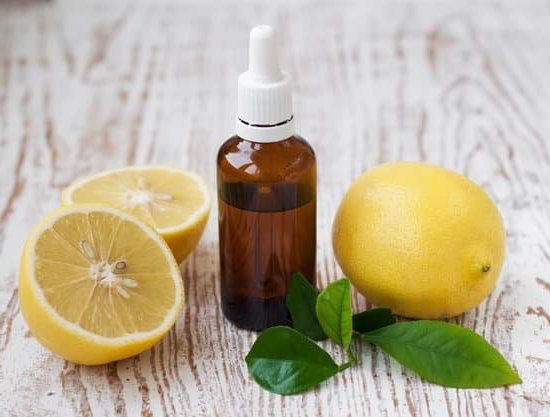Stress has become a constant companion in our fast-paced world, impacting both our mental and physical well-being. In the quest for relief, many turn to alternative practices like aromatherapy. In this article, we delve into the question: what aromatherapy oils are good for stress? Aromatherapy, rooted in ancient traditions, harnesses the power of natural oils to promote relaxation, reduce anxiety, and improve overall mood.
Aromatherapy is more than just pleasant scents; it is a holistic approach to wellness that seeks to restore balance and harmony within the body. By understanding the origins and benefits of aromatherapy, we can unlock its potential in combating stress and enhancing our quality of life. The science behind aromatherapy oils reveals their ability to influence brain chemistry, triggering responses that alleviate stress and promote feelings of calmness.
Lavender, chamomile, and other essential oils have gained recognition for their exceptional stress-relieving properties. Each oil offers unique benefits that target different aspects of stress, from soothing anxious thoughts to easing tension in the body. By exploring the specific advantages of these oils and learning how to incorporate them into our daily routines through diffusers, massage techniques, or inhalation methods, we can create personalized strategies for managing stress effectively.
Understanding Aromatherapy
Aromatherapy has been used for centuries as a natural remedy for various ailments, including stress relief. The practice of using aromatic plants and their essential oils has its origins in ancient civilizations such as Egypt, China, and India. These cultures recognized the therapeutic properties of certain plant extracts and utilized them for both physical and emotional well-being.
One of the key benefits of aromatherapy is its ability to positively impact our mental state. By inhaling the aroma of specific essential oils, our olfactory system sends signals to the brain, triggering emotional responses and promoting relaxation. This is why aromatherapy is often recommended as a holistic approach to managing stress, anxiety, and even depression.
Some commonly used aromatherapy oils known for their stress-relieving properties include lavender, chamomile, and eucalyptus. These essential oils have calming effects on the mind and body, helping to reduce tension and promote a sense of tranquility. Incorporating these oils into your daily routine through diffusers, massage oils, or inhalation techniques can help create a soothing environment conducive to stress relief. Below are some examples of popular aromatherapy oils that are good for stress management:
- Lavender: Known for its calming scent, lavender oil helps alleviate nervous tension and promote relaxation.
- Chamomile: Often used in teas as well, chamomile oil has soothing properties that aid in reducing anxiety and improving sleep quality.
- Eucalyptus: With its refreshing aroma, eucalyptus oil can clear the mind and ease respiratory issues related to stress.
Harnessing the power of aromatherapy oils for stress relief is not only effective but also a pleasant way to unwind after a long day. Whether you choose to diffuse these oils in your home or incorporate them into your self-care routine through massage or baths, embracing the therapeutic benefits of aromatherapy can significantly impact your overall well-being.
With proper knowledge of which aromatherapy oils are good for stress management, you can create a personalized routine that suits your needs and promotes a sense of calm in your daily life.
How Aromatherapy Oils Work
Aromatherapy oils have been used for centuries as a natural remedy for various ailments, including stress relief. The science behind how these oils work to alleviate stress lies in their interaction with the brain and body. When essential oils are inhaled or applied to the skin, they can trigger specific receptors in the olfactory system and skin cells, sending signals to the brain that can affect emotions, mood, and stress levels.
One key mechanism by which aromatherapy oils help reduce stress is through their ability to impact the limbic system in the brain. The limbic system plays a crucial role in regulating emotions, behavior, and memory.
Certain essential oils, such as lavender and chamomile, contain compounds that can activate neurotransmitters like serotonin or dopamine, which are known for their mood-enhancing and calming effects. This activation of neurotransmitters can lead to a relaxation response in the body, helping to alleviate feelings of anxiety and stress.
Furthermore, aromatherapy oils can also influence the release of hormones like cortisol, commonly known as the stress hormone. High levels of cortisol in the body are associated with chronic stress and its negative effects on overall health. Some essential oils have been found to help regulate cortisol levels, promoting a sense of calmness and reducing feelings of tension. By understanding how aromatherapy oils interact with our physiological systems, we can harness their stress-relieving properties effectively for improved well-being.
| Essential Oil | Benefits for Stress Relief |
|---|---|
| Lavender | Calming properties that promote relaxation and reduce anxiety. |
| Chamomile | Soothing effects that help to ease nervous tension and promote better sleep. |
| Bergamot | Uplifting scent that can improve mood and reduce feelings of depression. |
Top Aromatherapy Oils for Stress Relief
Aromatherapy has gained popularity for its ability to promote relaxation and reduce stress levels. When it comes to choosing the best aromatherapy oils for stress relief, there are several key options to consider. Among the top choices are lavender and chamomile, renowned for their calming properties. Additionally, oils like Bergamot, Ylang Ylang, and Frankincense are also highly effective in alleviating stress and anxiety.
Lavender oil is perhaps one of the most well-known essential oils for relaxation. It has been used for centuries to help calm the mind and body, promoting a sense of peace and tranquility. Chamomile oil is another popular option with similar soothing effects. Its gentle floral aroma can ease tension and promote restful sleep, making it a valuable tool in combating stress.
Bergamot essential oil is another excellent choice for stress relief due to its citrusy scent that can uplift the mood and reduce feelings of anxiety. Ylang Ylang oil is known for its sweet fragrance that can help alleviate nervousness and tension. Frankincense oil, with its woody and earthy aroma, is also beneficial for promoting emotional balance and reducing stress levels. Each of these essential oils offers unique benefits when it comes to managing stress effectively.
| Aromatherapy Oil | Stress-Relieving Properties |
|---|---|
| Lavender | Promotes relaxation and peacefulness |
| Chamomile | Soothes tension and encourages restful sleep |
| Bergamot | Uplifts the mood and reduces anxiety |
Benefits of Each Aromatherapy Oil
Aromatherapy oils have been used for centuries to promote relaxation, reduce stress, and improve overall well-being. Each essential oil possesses unique properties that contribute to its stress-relieving benefits. Understanding the specific characteristics of each oil can help you select the best ones for your individual needs. Here is a detailed look at some top aromatherapy oils known for their stress-relieving properties:
- Lavender: Lavender essential oil is one of the most popular choices for stress relief due to its calming and soothing aroma. It can help reduce anxiety, promote better sleep, and create a sense of tranquility.
- Chamomile: Chamomile essential oil is another excellent option for alleviating stress. It has relaxing properties that can ease tension, calm the mind, and induce feelings of relaxation.
- Bergamot: Bergamot essential oil is known for its uplifting and refreshing scent. It can help relieve stress, improve mood, and boost energy levels.
These are just a few examples of the many aromatherapy oils that can help combat stress and promote emotional well-being. Experimenting with different oils or blends can help you find what works best for you in managing stress effectively.
- Some individuals may find certain scents more appealing or more effective in reducing stress than others.
- It’s important to remember that aromatherapy is a personal experience, so what works well for one person may not have the same effect on another.
How to Use Aromatherapy Oils for Stress Relief
Aromatherapy oils have gained popularity for their ability to promote relaxation and relieve stress, offering a natural and holistic approach to managing one’s well-being. When it comes to incorporating aromatherapy oils into your routine for stress relief, there are various methods that can be used to maximize their benefits.
One popular way to experience the calming effects of these oils is through the use of diffusers. These devices disperse the essential oils into the air, allowing you to inhale the aromas and benefit from their soothing properties.
In addition to diffusers, massage therapy is another effective way to use aromatherapy oils for stress relief. By mixing a few drops of your chosen oil with a carrier oil, such as coconut or almond oil, you can create a relaxing massage blend that not only nourishes your skin but also helps alleviate tension and promote relaxation.
The act of massaging the oil onto your skin can help release built-up stress and promote a sense of calmness throughout your body.
Furthermore, inhalation techniques can also be used as a simple yet effective method for reaping the benefits of aromatherapy oils for stress relief. You can add a few drops of your preferred oil to a bowl of hot water or a tissue and inhale the steam or scent deeply.
This direct inhalation allows the aromatic molecules to enter your bloodstream quickly and stimulate your senses, helping you relax and unwind from daily stressors. By incorporating these various techniques into your daily routine, you can harness the power of aromatherapy oils to combat stress and promote overall well-being.
Aromatherapy Blends for Comprehensive Stress Relief
Creating Your Own Aromatherapy Blends
One of the most effective ways to maximize the stress-relieving benefits of aromatherapy oils is to create your own personalized blends. By combining different essential oils, you can tailor the blend to suit your specific needs and preferences. When selecting oils for your blend, consider not only their individual properties for stress relief but also how they complement each other in terms of scent and therapeutic effects.
Popular Aromatherapy Blends for Stress Relief
Some popular combinations for stress relief include mixing lavender, chamomile, and bergamot essential oils. Lavender is known for its calming and relaxing properties, while chamomile helps reduce anxiety and promote relaxation. Bergamot has uplifting qualities that can help alleviate feelings of sadness or tension. Another well-known blend is a combination of frankincense, ylang-ylang, and sweet orange oils, which work together to reduce stress levels and promote emotional balance.
Tips for Blending Aromatherapy Oils
When creating your aromatherapy blends for stress relief, it’s important to dilute the essential oils properly to avoid skin irritation. Start by using a carrier oil like jojoba or coconut oil as a base before adding drops of your chosen essential oils. Begin with a small amount of each oil and gradually adjust the ratios until you find a combination that works best for you.
Remember to store your blends in dark glass bottles away from direct sunlight to preserve their potency. Experiment with different combinations until you discover the perfect blend that helps you manage stress effectively.
Safety Tips and Precautions for Using Aromatherapy Oils
When using aromatherapy oils for stress relief, it is essential to take certain safety measures and precautions to ensure their proper usage. While these natural oils can provide many benefits for stress management, it is important to use them correctly to avoid any adverse reactions or complications.
First and foremost, it is crucial to always dilute essential oils before applying them directly to the skin. Undiluted oils can be too potent and may cause skin irritation or other allergic reactions. It is recommended to mix essential oils with a carrier oil, such as coconut or jojoba oil, before applying them to the skin through massage or topical application.
Additionally, some essential oils may not be suitable for everyone, especially those with certain medical conditions, allergies, or sensitivities. Before using any aromatherapy oil for stress relief, it is advisable to consult with a healthcare professional or aromatherapist to determine which oils are safe for you based on your individual health situation.
Furthermore, it is important to store essential oils properly in a cool, dark place away from direct sunlight and heat. This will help preserve the quality and potency of the oils for longer use. By following these safety tips and precautions when using aromatherapy oils for stress management, you can fully enjoy their therapeutic benefits without any negative side effects.
Conclusion
Aromatherapy oils have been utilized for centuries to promote relaxation, reduce anxiety, and alleviate stress. The power of these natural extracts in providing relief from the pressures of daily life cannot be understated. By incorporating aromatherapy into your self-care routine, you can experience a sense of calm and tranquility that positively impacts your overall well-being.
When it comes to managing stress effectively, certain aromatherapy oils stand out for their exceptional calming properties. Lavender, chamomile, and jasmine are just a few examples of oils known for their stress-relieving benefits. These essential oils work synergistically with our senses to soothe the mind and body, creating a peaceful environment conducive to relaxation.
Incorporating aromatherapy into your daily routine doesn’t have to be complicated. Whether you choose to diffuse oils in your home, add them to baths or massages, or simply inhale them directly from the bottle, there are various ways to reap the benefits of these powerful extracts.
By experimenting with different blends and techniques, you can discover what works best for you in managing stress and promoting a sense of balance in your life. So why not explore the world of aromatherapy oils today and embark on a journey towards a stress-free existence.
Frequently Asked Questions
What Essential Oil Is Best for Stress?
Lavender essential oil is considered one of the best for stress relief due to its calming and soothing properties. It is known to help reduce anxiety, promote relaxation, and improve overall mental well-being.
What Essential Oils Make Stress Away?
Other essential oils that are effective in relieving stress include chamomile, bergamot, and ylang-ylang. Chamomile is known for its calming effects, bergamot for its mood-lifting properties, and ylang-ylang for reducing feelings of tension and anxiety.
What Oil Combination Is Good for Stress?
A popular oil combination for stress relief is a blend of lavender, chamomile, and frankincense essential oils. This combination offers a powerful synergy of relaxing, calming, and grounding effects that can help alleviate stress and promote emotional balance. Mixing these oils in proper ratios can create a soothing blend to use in aromatherapy or massage therapy for ultimate relaxation.

Are you looking for a natural way to improve your health and wellbeing?
If so, aromatherapy may be the answer for you.






